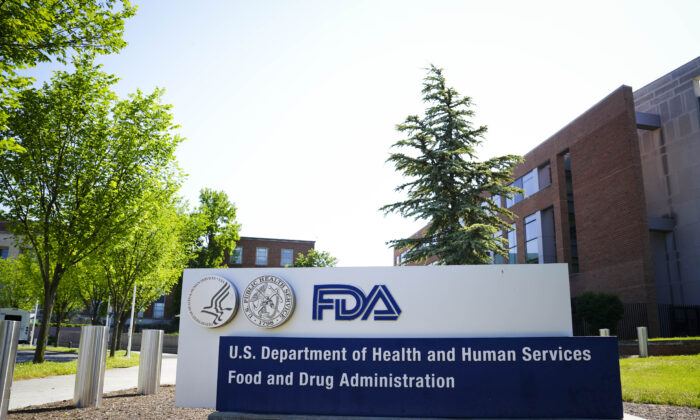


U.S. drug regulators on Sept. 11 authorized new COVID-19 vaccines to try to counter the poor effectiveness the current slate provide.
The U.S. Food and Drug Administration (FDA) cleared shots from Moderna and Pfizer that will be available to Americansas young as 6 months of age later this month.
"Vaccination remains critical to public health and continued protection against serious consequences of COVID-19, including hospitalization and death," Dr. Peter Marks, a top FDA official, said in a statement. "We very much encourage those who are eligible to consider getting vaccinated."
The FDA approved the Moderna and Pfizer vaccines for people aged 12 and older. Regulators granted emergency authorization for the shots for people aged 6 months to 11 years of age.
There was no mention of Novavax, whose vaccine is also available in the United States.
The shots target XBB.1.5, a subvariant of the Omicron virus variant. That subvariant has already largely been displaced by newer strains, including EG.5, according to the U.S. Centers for Disease Control and Prevention (CDC).
The authorizations came despite a dearth of data from clinical trials.
Moderna says its new shot in a trial induced immune responses against EG.5 and other newer variants.
Pfizer says preclinical data has shown antibodies generated by its new vaccine "effectively neutralize" EG.5, also known as Eris.
The CDC plans to meet with its advisers on Tuesday to consider to which populations it should recommend receive the new vaccines. If the panel recommends a vaccine, the federal government must pay for it.
Many countries have suggested younger, healthy people not to receive COVID-19 vaccinations as the disease has died down.
The United Kingdom, for instance, in August, said that vaccination this fall was only recommended for select groups, including people designated as at-risk.
The CDC scaled back its recommendations earlier this year for some populations.
CDC Director Dr. Mandy Cohen said earlier this year that the CDC was poised to recommend annual COVID-19 shots.
Pfizer and Moderna have said the new shots will cost approximately $110 to $130.
Another Replacement
The FDA cleared, and the CDC recommended, updated shots in the fall of 2022 amid waning effectiveness.Those shots were bivalent, containing components of the Wuhan strain and Omicron.
The effectiveness of those shots has proven unimpressive, according to CDC data.
Just 17 percent of the U.S. population had received a bivalent dose as of May 10, the last date the CDC lists the data for. Some doctors have opted against receiving them.
A survey of more than 2,000 adults in Arizona found that the primary reason for not receiving a bivalent was having protection from prior infection.
Other common reasons included wariness about side effects, belief the booster would not add protection, and belief the booster would not protect against infection.
The FDA has said that vaccines do not need to protect against infection or transmission and observational data indicate the bivalents did not prevent infection.
Criticism
Some experts have criticized U.S. authorities for clearing the new shots without strong data."There's essentially no data," Florida Surgeon General Dr. Joseph Ladapo told a recent press conference. "Not only that, but there are a lot of red flags."
He pointed to studies finding effectiveness of the vaccines turn negative over time.
Other papers have found the vaccines cause cardiac problems like heart inflammation, the doctor noted.
"It's truly irresponsible for FDA, CDC, and others to be championing something ... when we don't know the implications of it," he said.
Dr. Paul Offit, an FDA adviser, suggested to the Daily Mail that younger, healthy people who have already been vaccinated do not need one of the new doses.
"We are best served by targeting these booster doses to those who are most at risk of severe disease," such as people over 75 years of age, Dr. Offit said. "Boosting otherwise healthy young people is a low-risk, low-reward strategy," he added.
This is a breaking story that will be updated.


